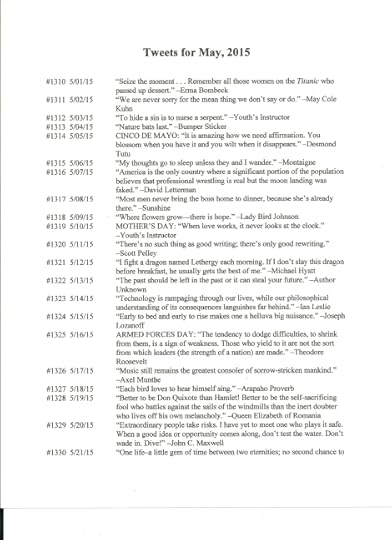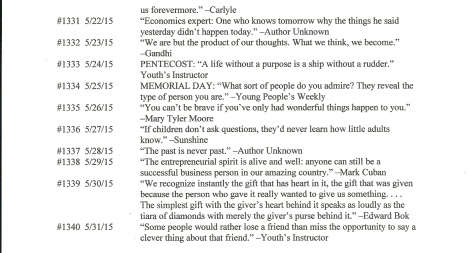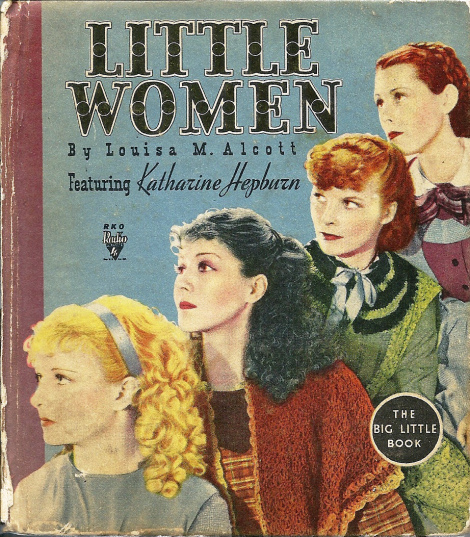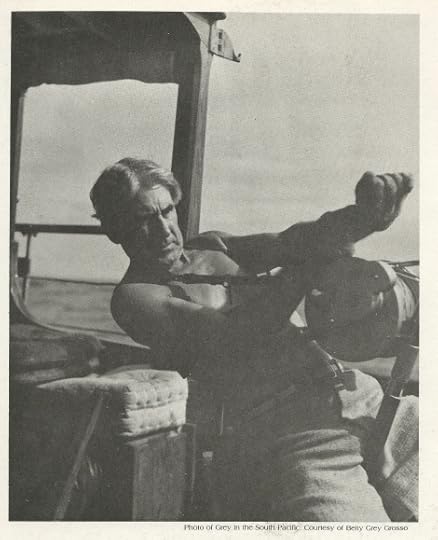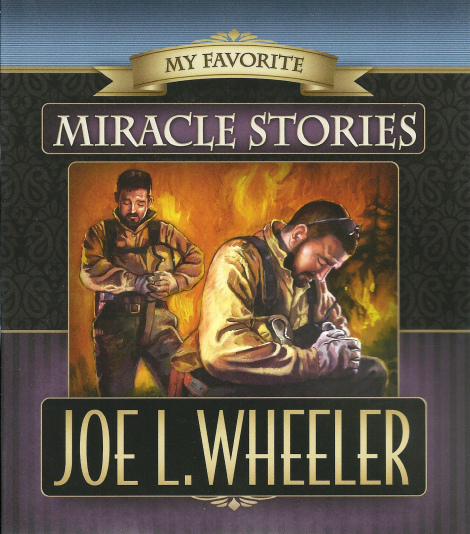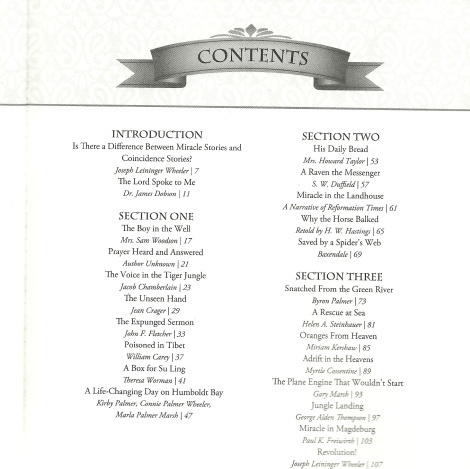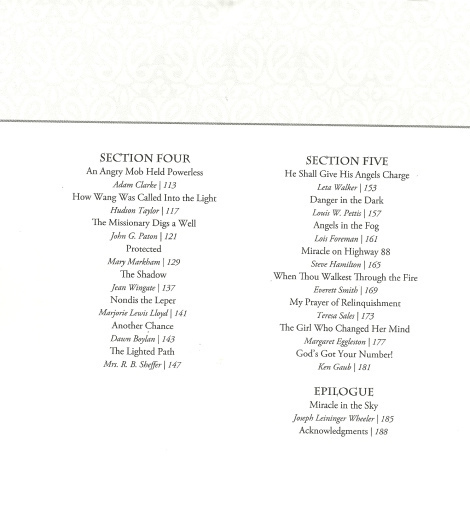Joe L. Wheeler's Blog, page 3
June 24, 2015
POEMS I HAVE LOVED IN LIFE #18
BLOG #25, SERIES 6
WEDNESDAYS WITH DR. JOE
POEMS I’VE LOVED IN LIFE #18
June 24, 2015
Alfred Noyes (1880 – 1958), though born in England, later moved to America, where he was Professor of English at Princeton (1914 – 1923). A prolific writer, he is best known for his The Loom of Years (1902), Poems, (1904), Forty Singing Seamen (1907), Tales of the Mermaid Tavern, and Forest of Wild Thyme (1905).
But out of all the works he ever wrote, it is The Highwayman that has given him immortality. My mother loved it, knew it by heart, and often performed it. One of the fascinating poetry genre we call “story poems,” it has an irresistible beat to it.
It is a poem to be recited to an audience—be sure and include children and teenagers—on a dark and stormy night. Turn the lights down low, or out completely. The more ghostly the setting the better!
Once heard, it can never be forgotten—especially if recited or performed by elocutionists like my mother. I’ve loved it ever since I first heard my mother perform it when I was young. If this was what poetry was—I wanted more of it!
THE HIGHWAYMAN
PART ONE
I
The wind was a torrent of darkness among the gusty trees,
The moon was a ghostly galleon tossed upon cloudy seas,
The road was a ribbon of moonlight over the purple moor,
And the highwayman came riding—
Riding—riding—
The highwayman came riding, up to the old inn-door.
II
He’d a French cocked-hat on his forehead, a bunch of lace at his chin,
A coat of the claret velvet, and breeches of brown doe-skin;
They fitted with never a wrinkle: his boots were up to the thigh!
And he rode with a jewelled twinkle
His pistol butts a-twinkle
His rapier hilt a-twinkle, under the jewelled sky.
III
Over the cobbles he clattered and clashed in the dark inn-yard,
And he tapped with his whip on the shutters, but all was locked and barred;
He whistled a tune to the window, and who should be waiting there
But the landlord’s black-eyed daughter,
Bess, the landlord’s daughter
Plaiting a dark red love-knot into her long black hair.
IV
And dark in the dark old inn-yard a stable-wicket creaked
Where Tim the ostler listened; his face was white and peaked;
His eyes were hollows of madness, his hair like mouldy hay,
But he loved the landlord’s daughter,
The landlord’s red-lipped daughter,
Dumb as a dog he listened, and he heard the robber say—
V
“One kiss, my bonny sweetheart, I’m after a prize to-night,
But I shall be back with the yellow gold before the morning light;
Yet, if they press me sharply, and harry me through the day,
Then look for me by moonlight,
Watch for me by moonlight,.
I’ll come to thee by moonlight, though hell should bar the way.”
VI
He rose upright in the stirrups; he scarce could reach her hand,
But she loosened her hair I’ the casement! His face burnt like a brand
As the black cascade of perfume came tumbling over his breast;
And he kissed its waves in the moonlight,
(Oh, sweet black waves in the moonlight!)
Then he tugged at his rein in the moonlight, and galloped away to the West.
PART TWO
I
He did not come in the dawning; he did not come at noon;
And out o’ the tawny sunset, before the rise o’ the moon,
When the road was a gipsy’s ribbon, looping the purple moor,
A red-coat troop came marching—
Marching—marching—
King George’s men came marching, up to the old inn-door.
II
They said no word to the landlord, they drank his ale instead,
But they gagged his daughter and bound her to the foot of her narrow bed;
Two of them knelt at her casement, with muskets at their side!
There was death at every window;
And hell at one dark window;
For Bess could see, through her casement, the road that he would ride.
III
They had tied her up to attention, with many a sniggering jest;
They had bound a musket beside her, with the barrel beneath her breast!
“Now keep good watch!” and they kissed her.
She heard the dead man say—
Look for me by moonlight;
Watch for me by moonlight;
I’ll come to thee by moonlight, though hell should bar the way!
IV
She twisted her hands behind her; but all the knots held good!
She writhed her hands till her fingers were wet with sweat or blood!
They stretched and strained in the darkness, and the hours crawled by like years,
Till, now, on the stroke of midnight,
Cold, on the stroke of midnight,
The tip of one finger touched it! The trigger at least was hers!
V
The tip of one finger touched it; she strove no more for the rest!
Up, she stood up to attention, with the barrel beneath her breast,
She would not risk their hearing; she would not strive again;
For the road lay bare in the moonlight;
Blank and bare in the moonlight;
And the blood of her veins in the moonlight throbbed to her love’s refrain.
VI
Tlot-tlot; tlot-tlot! Had they heard it? The horse-hoofs ringing clear;
Tlot-tlot, tlot-tlot, in the distance? Were they deaf that they did not hear?
Down the ribbon of moonlight, over the brow of the hill,
The highwayman came riding,
Riding, riding!
The red-coats looked to their priming! She stood up, straight and still!
VII
Tlot-tlot, in the frosty silence! Tlot-tlot, in the echoing night!
Nearer he came and nearer! Her face was like a light!
Her eyes grew wide for a moment; she drew one last deep breath,
Then her finger moved in the moonlight,
Her musket shattered the moonlight,.
Shattered her breast in the moonlight and warned him—with her death.
VIII
He turned; he spurred to the West; he did not know who stood
Bowed, with her head o’er the musket, drenched with her own red blood!
Not till the dawn he heard it, his face grew grey to hear
How Bess, the landlord’s daughter,
The landlord’s black-eyed daughter,
Had watched for her love in the moonlight, and died in the darkness there.
IX
Back, he spurred like a madman, shrieking a curse to the sky,
With the white road smoking behind him and his rapier brandished high!
Blood-red were his spurs i’ the golden noon; wine-red was his velvet coat,
When they shot him down on the highway,
Down like a dog on the highway,
And he lay in his blood on the highway, with the bunch of lace at his throat.
* * * * * * * * * *
X
And still of a winter’s night, they say, when the wind is in the trees,
When the moon is a ghostly galleon tossed upon cloudy seas,
When the road is a ribbon of moonlight over the purple moor,
A highwayman comes riding—
Riding—riding—
A highwayman comes riding, up to the old inn-door.
XI
Over the cobbles he clatters and clangs in the dark inn-yard;
He taps with his whip on the shutters, but all is locked and barred;
He whistles a tune to the window, and who should be waiting there
But the landlord’s black-eyed daughter,
Bess, the landlord’s daughter,
Plaiting a dark red love-knot into her long black hair.


June 10, 2015
A. E. Houseman’s “Is My Team Ploughing?”
BLOG #26, SERIES 6
WEDNESDAYS WITH DR. JOE
POEMS I’VE LOVED IN LIFE #19
A. E. HOUSEMAN’S “IS MY TEAM PLOUGHING?”
July 1, 2015
A. E. Houseman (1859 – 1936), is considered to be one of the greatest classical scholars of his age, having taught at London’s University College and at Cambridge University. He had the ability to strip his verse down to the very bone. In his story collection, A Shropshire Lad, there is a pervading mood of pessimism. Of it, Louis Undermeyer observes that “Nature is not kind; lovers are untrue; men cheat and girls betray; lads, though lightfoot, drink and die; an occasional drum calls to a conflict without reason, a struggle without hope. Nevertheless, courage is dominant.”
I have found Houseman’s poetry to especially appeal to college-age males, for society has edged many of them into a pessimistic outlook on life. Yet, having said that, Houseman’s sometimes sarcastic sense of humor resonates well with a generation that finds it hard to be idealistic. But Houseman also reminds his readers that life has a way of going on, whether we’re there or not. Thomas Hardy considered “Is My Team Ploughing” to be one of the most dramatic short poems in the English language.
The look on the faces of college students, especially males, who are slowly digesting the poem as I read it, when I come to the concluding lines and they realize just who the friend is . . . is absolutely priceless.
It’s a poem that would have seemed even more relevant to opeople who grew up in a rural agricultural area where, in pre-industrial days, one plowed with a team of horses rather than a tractor. The speaker, now ostensibly dead, poses four questions to his friend, each one hitting closer to home than the previous one. At the end, many the young listener grins ruefully but admiringly as he realizes how brilliantly he’s been set up.
IS MY TEAM PLOUGHING
“Is my team ploughing,
That I used to drive
And hear the harness jingle
When I was man alive?”
Aye, the horses trample,
The harness jingles now;
No change though you lie under
The land you used to plough.
“Is football playing
Along the river shore,
With lads to chase the leather,
Now I stand up no more?”?
Aye, the ball is flying,
The lads play heart and soul;
The goal stands up, the keeper
Stands up to keep the goal.
“Is my girl happy,
That I thought hard to leave,
And has she tired of weeping
As she lies down at eve?”
Aye, she lies down lightly,
She lies not down to weep:
Your girl is well contented.
Be still, my lad, and sleep.
“Is my friend hearty,
Now I am thin and pine;
And has he found to sleep in
A better bed than mine?”
Aye, lad, I lie easy,
I lie as lads would choose;
I cheer a dead man’s sweetheart.
Never ask me whose.


DO YOU LIKE DAY-BRIGHTENERS?
BLOG #23, SERIES 6
WEDNESDAYS WITH DR. JOE
DO YOU LIKE DAY-BRIGHTENERS?
June 10, 2015
Well I do. I’m referring to a staple in my life for a very long time, a daily quotation to set my sails for the day. Over the years, I’ve gathered together well over a million of them to draw from. During my 34 years in the classroom, it was what I’d do: first thing of every day, write a day-brightening quotation on the blackboard. I put a lot of thought into them because I knew it was the first thing my students looked at when they came to class. And it was because so many wrote down their favorite ones and kept them down through the years, that I responded to their pleas to “Please, do it again! I miss them,” and began tweeting a quotation each day back in 2011.
Remembering how boring quotes can become if they are too similar to each other, too saccharine, too same ol’ same ol’, too pious, too preachy, too serious, too light, too old, too new, I’ve always done my best to mix them so that those who read them each day will know there’s no sameness; and that I mix in humor with the thought-provoking; and that my personal reading mixes in the contemporary with the old.
Several days ago, my agent, Greg Johnson, checked up on me, asking me how many people read our tweets each day and blogs each week. I didn’t know—in fact, it had been years since I’d last checked on such numbers. Mainly because I felt that if I did my utmost to make each entry the very best I could, a Higher Power would take care of the numbers. Furthermore, that if bloggers and tweeters felt blessed, informed, entertained, enlightened, etc., by them, they’d share them with their friends and relatives and suggest to them that they also become regulars. I just assumed the numbers would be somewhat similar; thus imagine my surprise to discover that there were almost nine times more blog-readers than tweet-readers! I’d mistakenly assumed that most people would want to read both.
I’ve now been tweeting quotations for 1350 days as of today; and have a request to make of all you bloggers who haven’t yet checked out the daily tweets. It would mean a great deal to me if you’d just give it a try for a week or so, and let me know whether or not you like them. I’m making this request not because my ego needs such affirmation, but because I so much would like to share them with you each day.
Just to give you a feel for what they’re like, I’m attaching all of the May 2015 tweets. I do hope you like them. And if you already read them each day—thank you for being part of my life! On the other hand, if you have not, just go to http://www.twitter.com/JoeWheelerBooks.com – and sign up – and enjoy!


June 3, 2015
Louisa May Alcott’s “Little Women”
BLOG #22, SERIES 6
WEDNESDAYS WITH DR. JOE
DR. JOE’S BOOK OF THE MONTH CLUB #41
LOUISA MAY ALCOTT’S LITTLE WOMEN
June 3, 2015
Louisa May Alcott (1832 – 1888), was born in Germantown, Pennsylvania, and ended her days in Boston, Massachusetts. Her mother, Abigail [Abba] May, was born into one of America’s most famous families, in direct line from Samuel Sewall, Chief Justice of the Supreme Court of Massachusetts. Her father, Col. Joseph May, was one of Boston’s leading merchants. Between the Sewalls and the Mays, Abba was related to almost anybody who was anybody in the state—including the Greeles, the Frothinghams, and the Quincys; in fact, her great aunt, Dorothy Quincy Scott, had been John Hancock’s wife. And then there was that mystical improvident visionary named Bronson Alcott who, in terms of educational philosophy, was way ahead of his time, choosing to rule his students by love rather than by punishments. Not surprisingly life with him was one long financial struggle for Abba (in 28 years, they’d move 27 times). Yet she loved him, and would marry no other.
Out of that union came eight children, four who survived into adulthood. The oldest was Anna; Louisa May, second; Elizabeth Sewall, third; and Abba May, fourth. Bronson homeschooled them all. Each of his children was expected to spread her wings, dare to fly with the eagles.
Always, Louisa had wanted to be a writer. She wrote Flower Fables (1854-55) when she was only sixteen. She would write prolifically all her life; she felt she had to because making a living was not her father’s strong suit. For some time, almost in desperation, she wrote melodramatic trash in order to bring in money. Her first successful book was Hospital Sketches (1863) about her experiences as a nurse during the Civil War. While serving in Washington, D.C., under horrendous conditions, she contracted typhoid, and suffered after-effects from it for the rest of her life.
The books she is most remembered for, however, are the following: Moods (1865), Little Women (1868-1869), An Old-Fashioned Girl (1870), Little Men (1871), Eight Cousins (1875), Rose in Bloom (1876), Under the Lilacs (1878), Jack and Jill (1881), and Jo’s Boys (1886).
But the masterpiece, of course, was Little Women
THE CONTINUING APPEAL OF LITTLE WOMEN.
All my life, I have loved the book Little Women. As a child, I was captivated by the tale itself. Like millions of readers everywhere, I fell in love with the March family—especially Jo—to such an extent that long before I realized it, the Marches had become almost as much a part of me as my own flesh and blood.
Years later, I read the book again, with more than a little apprehension, for so many books we first read as children end up disappointing us when we come back to them as adults. Not to worry! Little Women is a seemingly bottomless well, and the older one gets, and the more times one rereads it, the deeper and more profound the story becomes.
Why that is so has puzzled me for many years. Each year that I assigned Little Women to undergraduates in my American Literature classes, I’d wonder: Will it hold up this time? Will this new class, a century and a quarter after the story was written, find it irrelevant or passé? Will the men turn up their collective noses at it? In this age of women’s lib, will the women find it too simplistic and stereotypical?
But each year, it was the same: I’d walk into the classroom the next class period after my exhaustive who-said-what-to-whom-about-whom tests (the only Cliffs Notes-proof tests I’ve ever devised), seat myself in the circle (all my classes are circles), and look around at the faces. It never failed—once class began, the room crackled! So intense were the discussions that sometimes it seemed like everyone in the room was talking at once, male as well as female. Needless to say, nothing would ratchet up the intensity level more than the relationship between Jo and Laurie—especially, whether or not Jo should have married Laurie instead of Mr. Bhaer.
–From my Introduction to Little Women (Focus on the Family/Tyndale, 1997).
* * * * *
You can find it anywhere for it is undoubtedly one of the most-loved and most-read books ever published in America. But naturally, I hope you’ll consider securing one of mine. I wrote a modest biography of Alcott at the front, a bibliography of all her writings at the back, and also Discussion Questions at the back as well. But our edition has something else: I was able to track down Frank T. Merrill’s stunning 203 woodcuts for the 1880 edition. Merrill actually read the book before he created each one! I know, for I’ve seen Louisa May Alcott’s personal inscriptions on the backs! That 1880 edition is one of the rarest of all Alcott books–I’ve seen only two in my lifetime. And all 203 Merriill woodcuts are in my edition. Which, of course, makes our Focus/Tyndale edition a rarity too.
As well as a number of shorter works, including many story anthologies and pessimistic last books.
My edition: Large trade paper – $16.99; the large hardback – $19.99, plus shipping of $6.00. And add 5% tax if you live in Colorado.
Send me an email at: [email protected]; or write me at P.O. Box 1246, Conifer, CO 80433.


May 27, 2015
Pandora’s Box, Drones, and Regime Change
BLOG #21, SERIES 6
WEDNESDAYS WITH DR. JOE
PANDORA’S BOX, DRONES, AND REGIME CHANGE
May 27, 2015
In recent days and weeks, the news from the Middle East just gets bleaker and bleaker—which makes me wonder. Specifically about the increasing use of drones in warfare. The rationale, of course, is that it’s not nearly as “messy” to surgically remove enemy leaders by drone strikes than having to fight them one on one on the ground. But what scares one is the precedent it sets: what is there then to stop them from returning the favor: using their own drones to surgically target our leaders in Washington?
When a President is Commander in Chief of the world’s largest military, there is an almost irresistible temptation to use it for regime-change. We removed Saddam Hussein in Iraq—now we’re seeing daily imagery of the barbaric ISIS exhibiting widespread atrocities across the Middle East. We step into Syria—and it unleashed a veritable hell in which one of the oldest civilizations in the world crumbles before our very eyes.
I remember hearing a pundit saying early on, where Assad of Syria was referenced: “As bad as he may be, has anyone taken into consideration the possibility that if we remove him from power, we may end up with something far worse?”
Well, it’s happened—and the situation grows more dire by the day.
Back to Iraq: We eliminate Iraq’s leader, arm the Iraquis, and when ISIS forces attack—they run. Whose fault is it?
What about the driving out or killing Christians all across the Middle East? Might that possibly be another example of Arabs taking vicarious revenge for our perceived intrusion into their “personal” affairs?
I don’t know the answers. I only know that there can be grave repercussions when one nation opens the Pandora’s Box of the Middle East and there emerges unimaginably vicious demons that heretofore had been kept safely caged.
And let’s look at Ukraine: Just how many countries around the world do we want to be responsible for? Yet, if our President is the acknowledged leader of the so-called “Free World,” how can he not take a stand in such a grave European dilemma?
It is always unpopular for a sitting President to respond to military “opportunities” in anything less than a macho way. But, since I’m in a wondering mood this morning—somehow nothing on this planet seems quite as simple as it appeared a few years ago.
More questions than I have answers.


May 20, 2015
TIME OUT FOR ZANE GREY
BLOG #20, SERIES 6
WEDNESDAYS WITH DR. JOE
TIME OUT FOR ZANE GREY
May 20, 2015
Forty years ago, when I completed my Vanderbilt doctorate, I mistakenly assumed that I could now put the frontier writer, Zane Grey (the subject of my dissertation), behind and resume my private life. In a way, I could; in another way, I could not. As I explained to one Associated Press reporter, when you are the foremost authority on something, or someone, you become prisoner of that knowledge and expertise. It’s sort of like the old Russian proverb, “He that dances with a bear doesn’t quit just because he gets tired.”
I ought to know: In around a month from now, I’ll be giving my 33rd consecutive keynote address to the members of the Zane Grey’s West Society, this one in Arizona.
Several times during the forty years, I felt the time had finally come to write a biography having to do with the life and times of Zane and Dolly Grey. Each time, for one reason or another, the project failed to jell. But now, my long-time agent, Greg Johnson, has urged me to make one last try.
So I’m structuring a new proposal, in harmony with current biographical trends. In order to do this, I’ve had to sideline several other deadlines. But I’m serious about it, for I strongly feel that if I don’t do it this time, in all likelihood, I never will.
Well, back to work.
Stay tuned. I’ll let you know if a contract results from all this.


May 13, 2015
Is Integrity an Absolute? — The Tom Brady Issue
BLOG #19, SERIES 6
WEDNESDAYS WITH DR. JOE
IS INTEGRITY AN ABSOLUTE?
THE TOM BRADY ISSUE
May 13, 2015
We’ve seen hubris before—think Lance Armstrong and Tiger Woods. Both mistakenly assumed they were too big to fail. Their legions of devoted fans wouldn’t stand for it. Both were wrong.
Ever since the lop-sided playoff victories of Brady and the New England Patriots, people have been wondering whether or not the NFL high command would have the guts to do more than slap the wrist, give a conspiratorial wink, and say, “Naughty, Naughty – don’t do that again” to their favorite cash-cow and glory-boy.
This time (according to newspaper columnists and reporters from papers such as the Denver Post and the Wall Street Journal), it turns out, NFL Commissioner Roger Goodell was not amused–least of all by Brady’s arrogance and refusal to cooperate by releasing his phone and e-mail records so that the investigation for Deflategate could reach a fair verdict. Brady clearly felt he was above the law. He was, in short, untouchable. Instead, what few expected: he and the Patriots get more than a wrist-slapping—considerably more.
It is now obvious that Goodell and his team realized a truth that Brady and his win-at-any-cost coach Belichick did not: If once the public perceives that the National Football League can no longer provide a level playing field for all teams (in which all teams have an equal opportunity to win games and pennants) – well, once that perception becomes a reality, millions will turn elsewhere with their allegiances and money.
Machiavelli, half a millennium ago, summed the issue up best: A Prince does not necessarily have to be moral; however, if once the public perceives that he is not moral—all is lost, for it can never ever be fully regained. In this respect, perception trumps reality.
Tom Brady–like Armstrong and Woods before him–had everything: wealthy beyond the average person’s fondest dreams, a lovely wife and photogenic family, world-wide fame, and millions of adoring fans. They were on Mt. Olympus. And assumed they’d stay there. Tom Brady, all too clearly, has made the same false-assumption: Oh it will all blow over; nothing will change.
It already has. Brady’s lustre has already dimmed. In today’s public perception, there will always be an asterisk (a la Barry Bonds and A-Rod) after his name and sports achievements. When people think about him–and this will include sports commentators–, there will henceforth always be a noticeable diminution of their respect for him. A shadow, akin to an eclipse of the sun or moon, has already reduced the wattage of Brady’s once undimmed glory.
It will never return.
It can not return.
Reason being this: like it or not, admit it or not, integrity remains as much an absolute as virginity. Neither can be qualified: one cannot be partly a virgin–one either is a virgin or one is not. Just so, one cannot be partly honest–one is either completely honest or one is not really honest at all.
It is also akin to love: love may precede respect–but it cannot survive the loss of it.
The general perception: that Brady is a man of absolute integrity–is now gone forever.
A pity.


May 6, 2015
Robert Barr’s “The Sword Maker”
BLOG #18, SERIES 6
WEDNESDAYS WITH DR. JOE
DR. JOE���S BOOK OF THE MONTH CLUB #40
ROBERT BARR���S THE SWORD MAKER
May 6, 2015
Well, there���s always a first time for everything. Quite candidly, when I re-read Robert Barr���s A Prince of Good Fellows after an interval of over half a century, although I was pleased by the second reading, I failed to recapture my original delight. So much so that when I returned the book to my library after writing the April 1 blog (Blog #13, Series #6), I noticed another Barr title I���d evidently never read before, The Sword Maker. After scanning it, I decided to read it and see if I���d been mistaken about Barr���s writing power.
I had not. I literally could not put The Sword Maker down! Turns out it is a much more unputdownable read than was A Prince of Good Fellows. I didn���t quit reading until I reached the last page in the middle of the night. The result? Concluding that I must follow up last month���s blog by another book by the same author.
The setting is imperial Frankfort in Germany back in medieval times. I���ve always been fascinated by the hilltop castles overlooking the Rhine River, thus when I discovered Barr���s protagonist daring to pit his wits against the robber barons who from time to time brought river commerce to a halt, it was a great opportunity to learn more about that period of German history.
I will be most interested in hearing from you, seeing if or not you agree with my featuring this second Barr title.
For biographical information, please refresh your memory by re-reading the April 1 blog.
I���m guessing that a number of you will now be interested in reading more of Barr���s novels.
Here���s a list to help you in your search.
��������� In a Steamer Chair and Other Stories (1892)
��������� The Face and the Mask (1894)
��������� In the Midst of Alarms (1894)
��������� From Whose Bourne (1896)
��������� One Day is Courtship (1896)
��������� Revenge! (n.d.)
��������� The Strong Arm (n.d.)
��������� A Woman Intervenes (1896)
��������� Tekla: A Romance of Love and War (1898)
��������� Jennie Baxter, Journalist (1899)
��������� The Unchanging East (1900)
��������� The Victors (1901)
��������� Prince of Good Fellows (1902)
��������� The O���Ruddy, A Romance, (with Stephen Crane) (1903)
��������� The Tempestuous Petticoat (1905)
��������� A Rock in the Baltic (1906)
��������� The Triumphs of Eug��ne Valmont (1906)
��������� The Measure of the Rule (1907)
��������� Stranleigh���s Millions (1909)
��������� The Sword Maker (1910)
��������� The Palace of Logs (1912)
* * * * *
The Sword Maker by Robert Barr (New York: Frederick A. Stokes Company, 1910).


April 29, 2015
“My Favorite Miracle Stories”
BLOG #17, SERIES 6
WEDNESDAYS WITH DR. JOE
MY FAVORITE MIRACLE STORIES
April 29, 2015
Just out is our 90th book, the second in the My Favorite series of story collections, on the heels of My Favorite Angel Stories (2014); and it will be followed by My Favorite Answer to Prayer Stories in 2016. All the stories in these three books are true and faith-affirming.
WHY THIS SERIES MEETS SUCH AN URGENT NEED
In our 90 books and counting, this series breaks new ground for us. It meets a major need we���ve never addressed before: stories for church, Sunday school, Sabbath services, daily family worship hour, Christian schools, evangelism, etc. For let���s face it, if someone like us does not provide a large reservoir of such stories, how are such stories to be found by ministers, lay church leaders, parents, and teachers? If parents are to have a daily story hour for their families, in one year alone, that means they���d need 365 stories! These are all major reasons why we launched this series. We will be most interested in your responses.
There are 39 stories in our new book:
This is a very ecumenical collection, as you���ll see when you study the names of the authors, for many of them are famed clergymen or missionaries. We close with two life-changing epiphanies written by Pastor Ken Gaub and me. In both cases, we were staggered to discover that God was not only real, he was right by our side! And what an unexpected sequence of events made Dr. Dobson���s story possible!
It is a big book. Price is $15.99, plus $4.90 shipping. And if you���re a Colorado resident, add 5% tax. (Published by Pacific Press Publishing Association, 2015). When ordering, indicate if you wish the book to be signed or inscribed. Please send us an email if you wish to order: [email protected]. We are working on our website now, and hope to make it easier for you to order from the web page soon. But in the meantime, please feel free to send us an email to place your order.


April 22, 2015
“It Couldn’t Be Done”
BLOG #16, SERIES 6
WEDNESDAYS WITH DR. JOE
���IT COULDN���T BE DONE���
April 22, 2015
I���ve long been fascinated by stories having to do with this abstraction we call ���success.��� Just what is it that separates the successes from the failures in life? Thousands of books promising success to those who will buy and read them vie for our attention on bookstore shelves. And success remains one of the most turned-to categories in quotation books.
Each issue of Success magazine is redolent with articles, interviews, and bios geared to readers who are searching for success in their lives.
But is it possible that readers can get so inundated by torrents of success-related hype that they miss the great simple truths that, if internalized, could make all the difference in the world? The sober reality is that all the advice in the world won���t work if the advisee doesn���t.
I���ve long been intrigued by studies that confirm one reality in America today: four-point straight A students usually end up working for B-/C+ students. The former all-too-often being all theory and the latter being persistent pluggers who doggedly slog through obstruction after obstruction en route to eventual success. In reality, grade-point average is a lousy indicator of life-success.
Edward A. Guest (1881 – 1959), though born in England, achieved his fame in America. In 1899, Guest, exchange editor of the Detroit Free Press, began writing daily columns, the chief feature being homespun family-friendly poetry. By 1916, these poems were being syndicated in hundreds of newspapers across the nation. Thanks to daily and weekly syndication, weekly radio programs, royalties on books and greeting cards, movie rights, Guest became the highest paid poet in America. His work dominated the first half of the twentieth century.
Elocutionists such as my beloved mother memorized and performed Guest���s most popular poems before audiences large and small across the nation.
One of his most popular, and most widely anthologized poems, was this one ��� still alive a hundred years later (my mother performed it often):
IT COULDN���T BE DONE
Somebody said that it couldn���t be done,
But he with a chuckle replied
That ���maybe it couldn���t,��� but he would be one
Who wouldn���t say so till he���d tried.
So he buckled right in with the trace of a grin
On his face. If he worried he hid it.
He started to sing as he tackled the thing
That couldn���t be done, and he did it.
Somebody scoffed: ���Oh, you���ll never do that;
At least no one ever has done it���;
But he took off his coat and he took off his hat,
And the first thing we knew he���d begun it.
With a lift of his chin and a bit of a grin,
Without any doubting or quiddit,
He started to sing as he tackled the thing
That couldn���t be done, and he did it.
There are thousands to tell you it cannot be done,
There are thousands to prophesy failure;
There are thousands to point out to you one by one,
The dangers that wait to assail you.
But just buckle in with a bit of a grin,
Just take off your coat and go to it;
Just start in to sing as you tackle the thing
That ���cannot be done,��� and you���ll do it.
Included in Guest���s book, The Path to Home (Chicago: Reilly & Lee Company, 1919). Original text owned by Joe Wheeler.


Joe L. Wheeler's Blog
- Joe L. Wheeler's profile
- 36 followers


